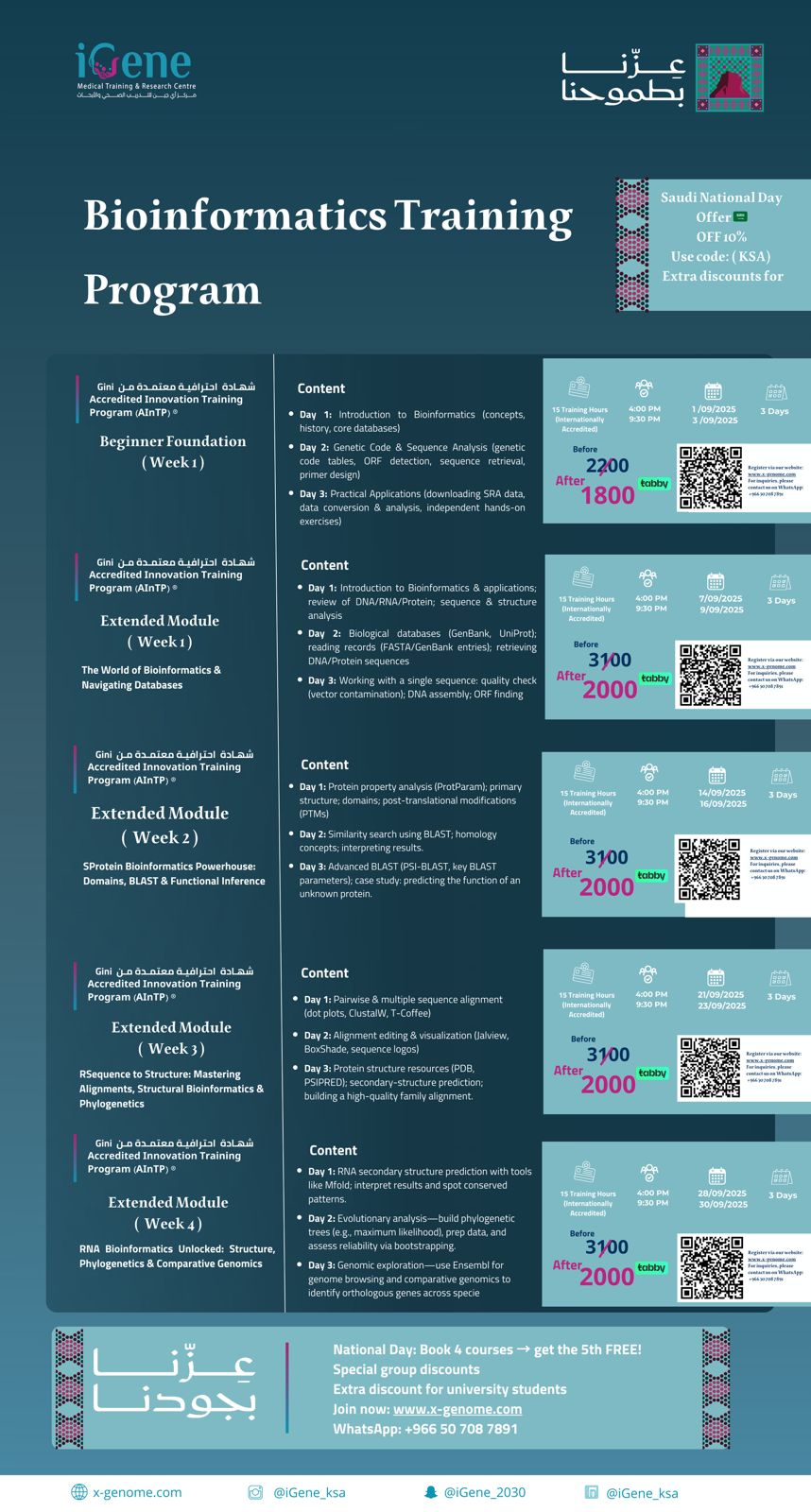Week 2 — Extended Module

“Registration has closed ”
Week 2 — Extended Module
Price
2000 S.R
2000 S.R
Duration
15 hours (internationally recognized)
3 Days
certificate
Accredited Innovation Training Program (AInTP) ®
Location
iGene Medical Training & Research Center
Date
This course runs from Sep 14th, 2025, to Sep 16th, 2025
Who is this course for?
- Molecular biology/proteomics researchers.
- R&D teams and drug-discovery interns.
- Anyone annotating or characterizing novel proteins.
A hands-on, step-by-step journey from the fundamentals to applied analysis. Trainees learn how to retrieve and clean real sequence data, run core DNA/protein analyses, build high-quality alignments, and generate publication-ready outputs. Each week delivers ~15 training hours (internationally accredited, AInTP) with practical exercises and instructor feedback.
Week 2 — Extended Module
What you gain (brief): Protein characterization and function inference using similarity search and advanced BLAST variants.
-
Day 1: Working with a Single Protein Sequence (5 hours)
- Lecture (2 hours):
- Predicting physico-chemical properties (molecular weight, pI) using ProtParam.
- Primary structure analysis: Hydrophobicity plots and transmembrane segment prediction.
- Introduction to protein domains and post-translational modifications.
- Practical (3 hours):
- Using ProtParam to analyze a protein sequence.
- Generating and interpreting a hydrophobicity plot with ProtScale.
- Introduction to domain databases (Pfam, InterPro).
- Practical challenge: From a given DNA sequence, find the longest ORF, translate it, and analyze the resulting protein's properties.
Day 2: The Power of Similarity Searching
- Sequence Similarity Searching (5 hours)
- Lecture (2 hours):
- The concept of homology and its importance.
- Introduction to BLAST: Different flavors (blastp, blastn, blastx, etc.).
- Understanding BLAST output: E-value, bit score, and alignments.
- Practical (3 hours):
- Running a blastp search on the NCBI server.
- Interpreting the graphical output, hit list, and individual alignments.
Day 3: Advanced Similarity Searching (5 hours)
- Lecture (2 hours):
- Controlling BLAST parameters: Substitution matrices, gap penalties, and filters.
- Introduction to PSI-BLAST for finding distant relatives.
- Practical and tasks (3 hours):
- Running a PSI-BLAST search and iterating to find more homologs.
- Using BLAST to find protein domains.
- BLAST Clinic: Bring your sequence and interpret the results with the instructor's help.
- Case study: Using BLAST to infer the function of an unknown protein.
-
Molecular biology/proteomics researchers.
-
R&D teams and drug-discovery interns.
-
Anyone annotating or characterizing novel proteins.
